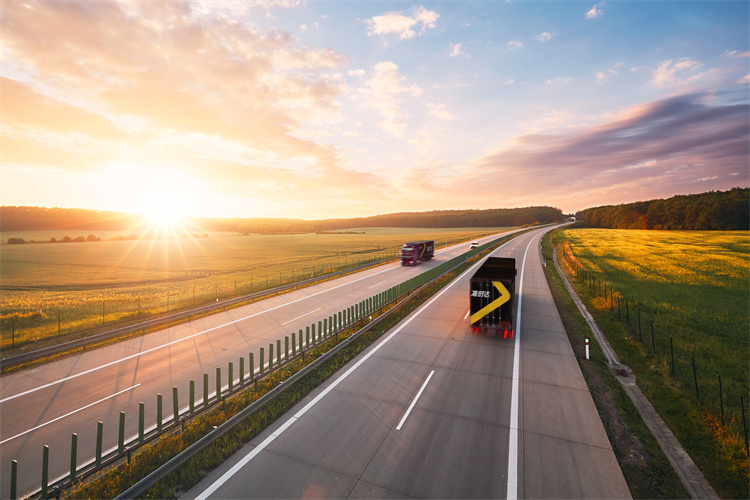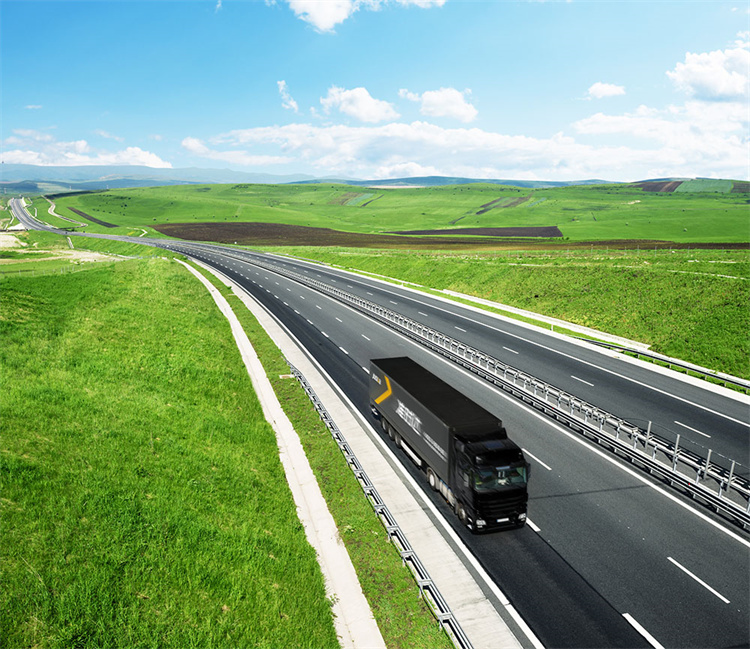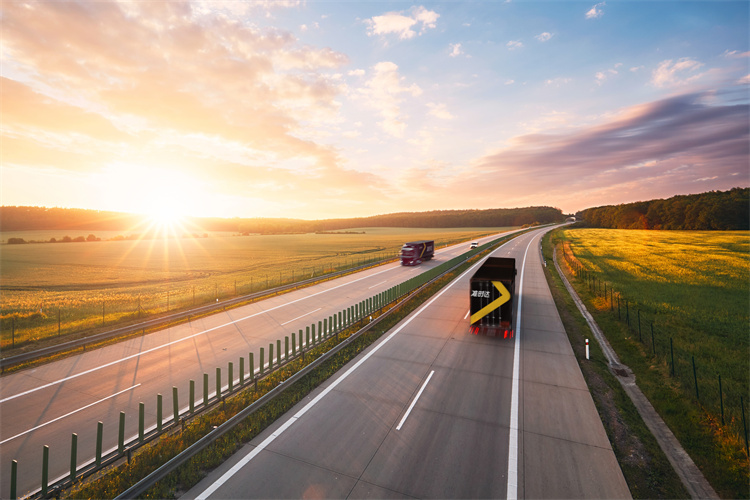Digital transformation and future trends of land logistics

The logistics industry is undergoing a rapid digital transformation. Companies aim to simplify procedures and enhance effectiveness through digitalization. Over 90% of organizations have adopted or plan to implement new technology in logistics operations by 2023. Understanding future trends in land logistics becomes crucial. The global digital transformation spending in logistics is anticipated to reach $94,972.3 million by 2026. This trend highlights the importance of embracing technological advancements. A formal digital transformation strategy exists in 67% of shipping companies. This sets the stage for an in-depth analysis of emerging trends.
The Role of Digital Transformation in Land Logistics

Key Technologies Driving Change
Internet of Things (IoT)
The Internet of Things (IoT) plays a pivotal role in land logistics. IoT devices provide real-time data on vehicle locations, cargo conditions, and route efficiency. This technology enhances supply chain visibility and allows logistics companies to track shipments accurately. Customers receive real-time updates and transparency regarding their orders. IoT integration leads to improved decision-making and resource allocation.
Artificial Intelligence (AI) and Machine Learning
Artificial Intelligence (AI) and Machine Learning revolutionize land logistics by automating processes and optimizing operations. AI algorithms analyze vast amounts of data to predict demand patterns and optimize delivery routes. Machine Learning models improve over time, leading to more accurate forecasts and efficient logistics management. These technologies contribute to substantial cost savings across logistics operations.
Blockchain Technology
Blockchain technology ensures secure and transparent transactions in land logistics. This technology provides an immutable ledger for recording every transaction in the supply chain. Blockchain reduces fraud and errors by offering a single source of truth. Logistics companies benefit from enhanced trust and collaboration among stakeholders. Blockchain adoption improves efficiency and accountability in logistics operations.
Benefits of Digital Transformation
Increased Efficiency
Digital transformation significantly increases efficiency in land logistics. Automation of routine tasks reduces manual errors and speeds up processes. Advanced analytics tools optimize inventory management and streamline operations. Companies achieve faster turnaround times and improved service delivery. Enhanced efficiency leads to higher customer satisfaction and competitive advantage.
Enhanced Customer Experience
Digital transformation enhances the customer experience in land logistics. Real-time tracking and communication tools keep customers informed about their shipments. Personalized services and tailored solutions address specific customer needs. Improved transparency builds trust and strengthens customer relationships. A superior customer experience becomes a key differentiator in the logistics industry.
Cost Reduction
Digital transformation drives cost reduction in land logistics. Automation minimizes labor costs and reduces operational expenses. Optimized route planning lowers fuel consumption and maintenance costs. Data-driven insights enable better resource allocation and inventory management. Cost savings enhance profitability and allow companies to invest in further innovations.
Challenges in Implementing Digital Transformation
Integration with Legacy Systems
Integration with legacy systems poses a significant challenge in digital transformation. Many logistics companies rely on outdated infrastructure that lacks compatibility with new technologies. Seamless integration requires careful planning and investment in modern IT solutions. Overcoming this challenge ensures a smooth transition to digital operations.
Data Security Concerns
Data security concerns arise with the increased use of digital technologies in land logistics. Protecting sensitive information from cyber threats becomes paramount. Companies must implement robust cybersecurity measures to safeguard data integrity. Ensuring data privacy and compliance with regulations builds trust among customers and partners.
Workforce Adaptation
Workforce adaptation presents a challenge in the digital transformation of land logistics. Employees need training and upskilling to operate new technologies effectively. Change management strategies facilitate a smooth transition to digital workflows. Empowering the workforce with digital skills enhances productivity and innovation.
Future Trends in Land Logistics

Autonomous Vehicles
Current Developments
Autonomous vehicles are revolutionizing land logistics by introducing self-driving trucks and drones. These technologies reduce human errors and optimize fuel consumption. Companies are investing in autonomous vehicle technology to improve road safety and enhance operational efficiency. The integration of autonomous vehicles in logistics operations is gaining momentum as companies seek to streamline transportation processes.
Potential Impact on Logistics
The impact of autonomous vehicles on land logistics is profound. These vehicles enable faster and more flexible deliveries, especially in last-mile operations. Drones offer a solution for last-mile delivery, enhancing delivery speed and reducing the environmental impact. Autonomous vehicles optimize routes and minimize human intervention, leading to cost savings and increased reliability in logistics operations. The adoption of autonomous vehicles is expected to transform the landscape of land logistics significantly.
Sustainable Logistics Practices
Green Technologies
Sustainable logistics practices are becoming a priority in land logistics. Green technologies play a crucial role in reducing the carbon footprint of logistics operations. Companies are adopting electric vehicles and alternative fuels to minimize emissions. The use of renewable energy sources in logistics facilities contributes to sustainability goals. Green technologies enhance the environmental performance of logistics operations, aligning with global sustainability initiatives.
Regulatory Changes
Regulatory changes are influencing sustainable practices in land logistics. Governments are implementing stricter emission standards and promoting eco-friendly transportation solutions. Compliance with these regulations requires logistics companies to invest in green technologies and adopt sustainable practices. Regulatory changes drive innovation in logistics operations, encouraging companies to prioritize environmental responsibility. The focus on sustainability is reshaping the future of land logistics.
Real-time Data Analytics
Predictive Analytics
Real-time data analytics is transforming land logistics by enabling predictive analytics. Companies use data to forecast demand patterns and optimize inventory management. Predictive analytics enhances decision-making by providing insights into market trends and customer preferences. Logistics companies leverage data to improve supply chain efficiency and reduce operational costs. The integration of predictive analytics in logistics operations is becoming essential for competitive advantage.
Demand Forecasting
Demand forecasting is a critical component of real-time data analytics in land logistics. Accurate demand forecasts enable companies to align production and distribution strategies with market needs. Data-driven insights help logistics companies anticipate fluctuations in demand and adjust operations accordingly. Demand forecasting improves resource allocation and minimizes stockouts, ensuring optimal service levels. The use of real-time data analytics in demand forecasting enhances the agility and responsiveness of logistics operations.
JUSDA's Innovations in Land Logistics
JusLink Platform
Real-time Supply Chain Visibility
JUSDA's JusLink Platform enhances real-time supply chain visibility in land logistics. The platform integrates advanced technologies to monitor supply chain activities. Companies gain access to real-time data on shipments and inventory levels. This transparency improves decision-making and operational efficiency. The platform ensures that logistics operations remain agile and responsive.
Intelligent Supply Chain Management
The JusLink Platform offers intelligent supply chain management solutions. JUSDA utilizes data analytics to optimize logistics processes. The platform supports dynamic inventory management and auto procurement. These features reduce lead times and improve resource allocation. Companies benefit from streamlined operations and increased competitiveness.
Rail Freight Services
China-Europe Block Trains
JUSDA excels in rail freight services with its China-Europe block trains. These trains provide efficient transportation options for land logistics. The service ensures reliable and timely delivery of goods across continents. JUSDA's expertise in rail freight enhances supply chain resilience. The company meets the evolving demands of global logistics.
Strategic Partnerships
Strategic partnerships strengthen JUSDA's rail freight services. Collaborations with key stakeholders enhance service quality. JUSDA maintains stable carriage capacity through these alliances. The partnerships support the company's commitment to end-to-end logistics solutions. JUSDA delivers tailored services that meet customer needs.
Cloud Warehouse Services
Automated Warehousing
JUSDA's cloud warehouse services offer automated warehousing solutions. Automation increases efficiency in land logistics operations. The system optimizes storage and retrieval processes. Companies achieve faster order fulfillment and reduced labor costs. JUSDA's technology-driven approach enhances warehouse productivity.
Integrated Warehouse and Distribution
Integrated warehouse and distribution services form a core part of JUSDA's offerings. The company provides seamless integration of warehousing and distribution activities. This integration supports multi-channel sales and efficient logistics operations. JUSDA's services ensure that companies maintain a competitive edge in land logistics.

SMART JUSLINK
Supply Chain Management Solution
Digital transformation plays a pivotal role in revolutionizing land logistics. Advanced technologies streamline operations and enhance competitiveness. Key trends such as autonomous vehicles, sustainable practices, and real-time analytics shape the future of logistics. These innovations drive efficiency and sustainability. Companies must embrace digital tools to thrive in a dynamic market. Preparing for the future involves adapting to emerging technologies. This ensures resilience and sustained competitiveness. Embracing digital transformation remains crucial for success in the evolving logistics landscape.
See Also
Navigating the Future: Logistics Advancements Through Digital Innovation
Revolutionary AI: Transforming Logistics for the Future
Innovative Logistics Tech: Venturing into Future Possibilities
Virtual Replicas: Revolutionizing Supply Chain Management
Ready for Change? Discovering the Newest in Transport Tech for Supply Chains
